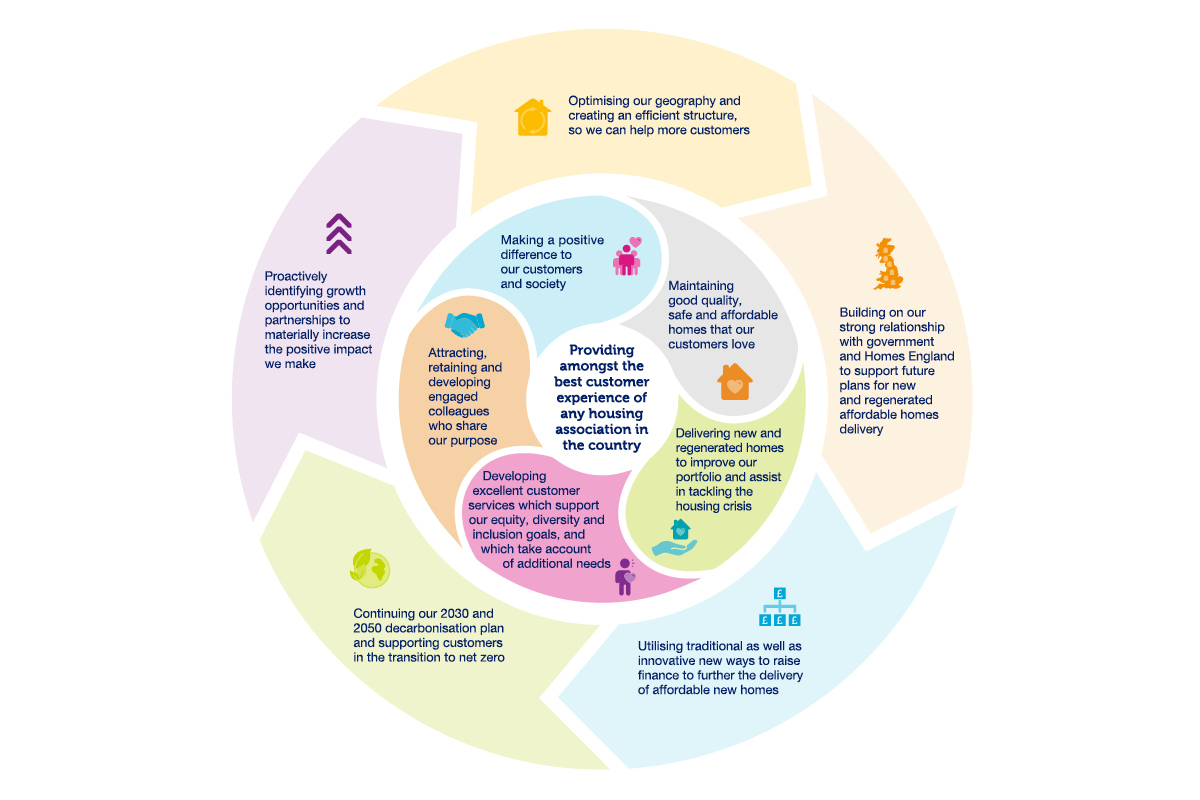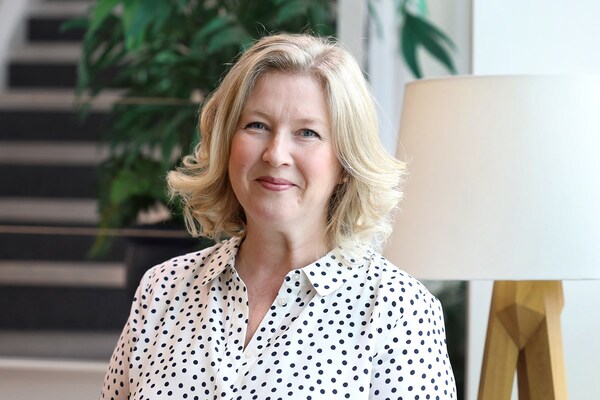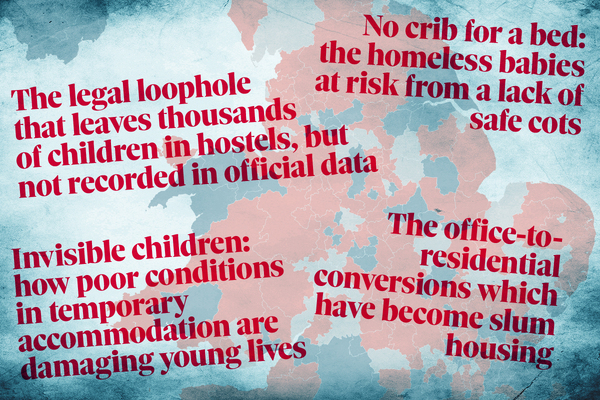You are viewing 1 of your 1 free articles
The new strategy that Orbit hopes will reset its relationship with tenants
Ahead of the launch of Orbit’s new strategy, chief executive Phil Andrew speaks to Jess McCabe about redesigning the customer journey and why he backs Inside Housing’s Build Social campaign
“We need to put customers at the heart of everything we do,” says Phil Andrew, chief executive of Orbit.
He is explaining to Inside Housing the reasons Orbit is launching a new corporate strategy today, which will guide its actions up to 2030.
Like so many housing associations across England, the 47,000-home landlord been feeling the pressure of public scrutiny.
Last October, the Housing Ombudsman ordered an independent review of the Orbit’s response to damp and mould repairs after detecting “repeated” poor performance. This was the first time the ombudsman had used this new power, granted under the Social Housing (Regulation) Act, and the review turned up 15 recommendations.
The investigation looked at cases where residents had been living with damp and mould for four years, as well as another case where Orbit failed to act quickly enough on leaks in a vulnerable resident’s home; the resident was blind and her son was deaf.
In other words, Orbit, like so many landlords in the sector, has been finding instances where services delivered to tenants are grating uncomfortably against its social purpose and aspirations.
Orbit hopes the new strategy will help it live up to its tagline that “everyone is entitled to a good-quality home that they can afford, in a place they are proud to live”. And the association aims to do this without compromising big ticket items, such as building homes and decarbonising.
Ahead of that launch, Inside Housing caught up with chief executive Mr Andrew to find out more.
Tenant satisfaction and changed expectations
Customer service is at the centre of the new strategy; Mr Andrew calls it the “burning platform” for why the new strategy was developed. The aim is to “drive everything through the customer. Because sometimes that hasn’t happened”, he says.
As well as the aforementioned ombudsman’s findings, the strategic plan mentions that Orbit is “not satisfied” with its scores in the new tenant satisfaction measures (TSMs).
The TSM data has not been published yet, but obviously it is a driver here, so what has Orbit found so far? Mr Andrew says that Orbit supports the TSMs and calls the process “really valuable” (although he shares some of the well-reported worries in the sector that the numbers could be gamed by the way the data is collected).
However, he adds: “The scores aren’t what we like them to be. We’re definitely the bottom half of equivalent housing associations, even though sample sizes are fairly small at the moment. And as our organisation only exists to satisfy the needs of our 100,000 customers, that’s just not a great place to be.”
The new strategy sets out various aims and how Orbit will measure its success; one of these is to achieve upper quartile TSM ratings.
Mr Andrew is still relatively new to the job, having joined Orbit nine months ago from debt charity StepChange.
When Mr Andrew joined Orbit, the landlord already had a strategy that was meant to take it to 2025. He is quick to point out the new strategy is not a total departure, but that the strategy was written in a different time.
Mr Andrew says it is “a fascinating time for the industry, where so much has changed”.
He adds: “Customer expectations are very, very high. [The] ombudsman’s expectations have changed. The regulator’s expectations have changed. But politicians are kind of in a very febrile and changeable mood, and quite feisty with it.”
Mr Andrew is upfront that the 2025 strategy simply has not been achieved. “What’s got in the way is COVID, Brexit [and] significantly enhanced requirements on damp, mould and condensation,” he explains. “We’ve got very, very high requirements on capital programme spend to keep our existing stock in a position where it needs to be at the same time.”
“Rather than providing a good asset, which is an input measure, we want an output measure which is that, as a customer, you feel safe and secure, that you feel understood and supported”
Regulation has also changed, and there is a new consumer standard. “One of the big things is that obligates us to have a customer journey which flexes for individual customer types, individual specific needs, individual vulnerabilities,” Mr Andrew says.
The new strategy is based in part on extensive consultation with residents and small staff groups. Orbit did 40 roadshows in nine months. Staff, Mr Andrew says, have been brutally honest and concerned about where things have gone wrong.
“We’ve got 1,400 people who could work pretty much anywhere else they wanted to, they choose to work in a not-for-profit, social purpose organisation,” he says. “The most important thing for them is that they jump out of bed every day to make a social difference. And if they feel like they have failed in any way on that, they just give each other a really hard time.”
Refocused strategy
So what does the strategy look like? What is different?
The strategy sets out a flower-like diagram (see below) of priorities for Orbit, with the words at the centre reading: “providing amongst the best customer experience of any housing association in the country”.
The 2025 strategy already included a lot about the customer experience. So does the diagram really mean something different?
Mr Andrew describes how Orbit has previously risked perceiving that the “asset was the customer” rather than the tenant. By which he means, the association focused on keeping homes to a certain quantity, but the new strategy puts tenants as the customers – refocusing on making sure they are being served.
This does invite some questions. After all, how many of the cases in the ombudsman’s report on Orbit, or to put it another way, the wider disrepair problems in the sector, revolve around assets not being properly looked after? Mr Andrew says it is an important distinction.
“Rather than providing a good asset, which is an input measure, we want an output measure which is that, as a customer, you feel safe and secure, that you feel understood and supported. That you feel you’re informed and you trust us to do the right thing. And really, really importantly, that you feel valued and treated with respect. Therefore, that is our aim to get to that feeling rather than getting to an asset quality.”
Some of this is about attitude. Mr Andrew gives the example of how the association responds if things go wrong in a mould case: “If you were taking an asset view, you end up getting quite defensive. And you say, ‘Well, we did two visits to our house and we washed the walls down, one of our subcontractors let us down a bit.’ And then we’ve ended up with an ombudsman finding,” he says.
“We need to skip that step completely and just go to, if you’ve got a problem with the quality of your home, your customers will tell you about it and the value proposition will get broken. Because they won’t feel valued and respected. Because they told you about a problem and you didn’t fix it quick enough.”
From residents during the roadshows, the question of feeling valued came up time and again. For example, tenants want their landlord to understand that they are busy people and have things to do, so they do not want to be hanging on the phone for long periods waiting to talk to someone.
Mr Andrew says that Orbit is investing £24m on a redesign of the “customer journey”. There has also been investment in the existing stock, creation of a damp and mould taskforce, and implementation of some of those recommendations from the Housing Ombudsman. (Mr Andrew does note, though, that the cases tend to date from 2021 and earlier.)
Development commitment and Build Social
What is not going to change, insists Mr Andrew, is Orbit’s commitment to build more 1,000 homes a year. “Over the past 10 years, my predecessor [Mark Hoyland] and Jonathan Wallbank, as a finance director, have just been really careful to make sure that we’re in a good financial position. So while budgets are tight because of how much we’ve got to do, our underlying financial position is very strong.
“I think that gives us a fairly unusual position in the market. And it does allow us to continue to build 1,000 new homes a year, which is what we were trying to do before.”
Orbit has also benefited because it does not have many high-rise buildings, which means the landlord has swerved some of the fire safety costs that other associations have been facing.
Orbit’s programme is split between social and affordable rent, shared ownership and 25% market sale. Mr Andrew says he’s “not anywhere near as negative about shared ownership as a lot of people are”. He points out that the tenure is the only viable option for someone like his daughter, who is 26 and works as a psychotherapist in the NHS and in schools. “I think my story is replicated hundreds of thousands of times around the country with young people,” he says.
“Customer expectations are very, very high. [The] ombudsman’s expectations have changed. The regulator’s expectations have changed”
How about social rent? Mr Andrew supports Inside Housing’s Build Social campaign and social rent. “We’ve had some engagement with the Labour Party over the past couple of months on this. And, you know, [shadow housing minister] Matt Pennycook is very credible in terms of what he does and what he says,” Mr Andrew says.
He is also cautious about how a new programme of social rent could be delivered. It makes sense why some other landlords are cutting back on their development programmes, as fire safety and asset management costs rise. “That’s all right,” he says. “But if Labour come along and say, ‘Build this many new homes’, I’m worried that some organisations will have disassembled the apparatus to be able to deliver that,” he says. “You can’t just stop building social homes for a year and then start again,” he observes – staff will have moved on, the supply chain will move on.
Like its development target, Orbit’s decarbonisation target remains in its new strategy, albeit with the focus shifting to after 2026, following two years of intensive focus on improving its existing operations. Relevant measures of success in the strategy include all new developments achieving an ‘A’ environmental impact rating and a 50% reduction in direct greenhouse gas emissions by 2031.
What might put that at risk is the 2050 net zero target, Mr Andrew argues, as it “is not is not anything to do with whether we’ve got the money to do it – we’ve got money put aside for that, that’s fine”. Instead, he is worried about the things that are outside the landlord’s control, such as whether legislation is strong enough to push action across the board and whether the supply chain will be sufficient to meet demand.
“Is the government properly legislating to create a burning platform that makes everybody do it, rather than it being optional?” he asks.
Orbit’s plans, he states, are “fully funded out to 2030”.
So if Orbit is not cutting development or diminishing its climate and insulation work, what is the association moving around to make these changes? “To be completely transparent, reconciling the financial plan with all of the things we want to do for this year was tough, but we did get there in the end,” Mr Andrew says.
Hear more from Phil Andrew, who will be speaking at Housing 2024 on improving existing homes through joined-up policy, strategy and funding this June. Book your delegate pass here: housingevent.com.
Recent longform articles by Jess McCabe
Inside Housing Repairs Tracker 2024
How much did English housing providers spend on repairs and maintenance in 2022-23? Jess McCabe looks through their financial records to find out
Who has built the most social rent in the past 10 years?
Jess McCabe delves into the archives of our Biggest Builders data to find out which housing associations have built the most social rent homes
Biggest Council House Builders 2024
For the second year running, Inside Housing names the 50 councils in Britain building the most homes. But is the rug about to be pulled on council development plans? Jess McCabe reports
Inside Housing Chief Executive Salary Survey 2024
Inside Housing’s annual survey reveals the salaries and other pay of the chief executives of more than 160 of the biggest housing associations in the UK, along with the current gender pay gap at the top of the sector. Jess McCabe reports
Sign up for the IH long read bulletin
Already have an account? Click here to manage your newsletters












